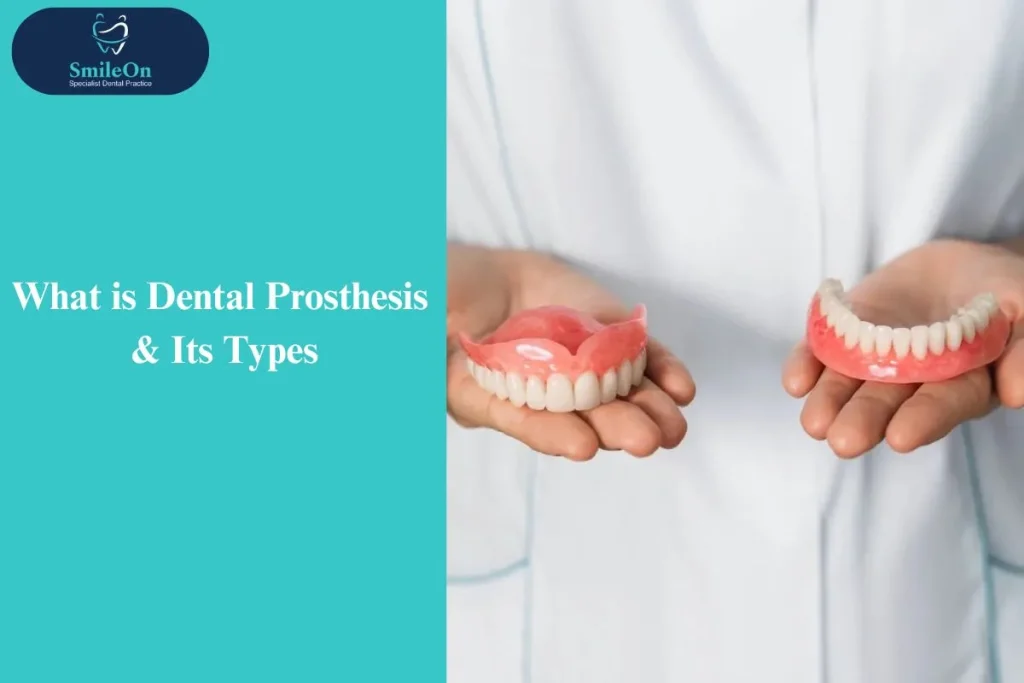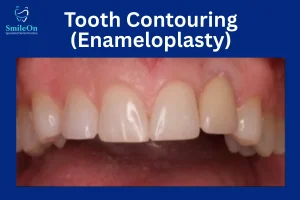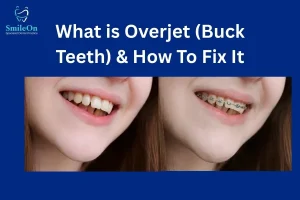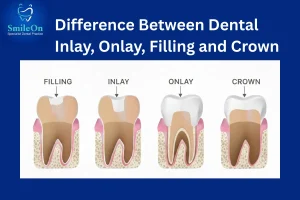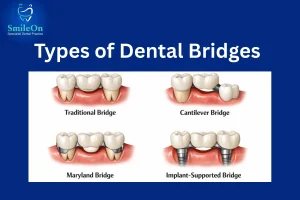Dental prosthesis refers to a custom-designed device which is used either to replace missing teeth or to fix bizarrely positioned teeth. Such prostheses empower the patient to restore the functionality of his/her mouth, correct speech articulation, and above all, confidence.
But regardless of the cause, tooth loss may adversely affect your life significantly by severely limiting your abilities to enjoy your daily activities, but the dental prostheses provide a sure way out of the problem.
Dental prostheses have become as comfortable, durable, and natural-looking as they ever have been. Whether to enhance aesthetics, restore chewing ability, and avoid any other oral health malady, your dentist may suggest a fixed dental prosthesis, a removable device, or perhaps a hybrid prosthesis dental design.
Table of Contents
ToggleTypes of Dental Prostheses
So, what are the most popular kinds of dental prosthesis in the field of modern dentistry? The solutions are individual and depend on the status of the bones, gums, and any other condition of teeth.
1. Dental Crowns
Dental crowns are covers that fit over broken, worn down, and infected teeth to help them resume their form, strength, and look. They are also used to finalize a process, such as a root canal or capping a dental implant. They are permanent fixtures characteristically provided in porcelain, ceramic, metal, or any combination thereof and adhere to the tooth- hence a type of fixed dental prosthesis.
2. Dental Bridges
A dental bridge consists of replacing one or more missing teeth by fixing them on neighboring healthy teeth or implants. It actually fills the gap in which teeth are missing. It is one more fixed type of dental prosthesis because it cannot be taken off by the patient, being cemented to the oral cavity in the place. Bridges serve the role of preserving facial shape and allowing teeth not to move around, enhancing the process of chewing.
3. Dentures
Dentures are the old and yet very efficient solution to tooth loss. All (complete dentures) or some (partial dentures) of these teeth can be substituted by these prostheses, which can be removed from the mouth. Although modern dentures do not provide the stability of the fixed prostheses, they are more stable and more natural-looking. They particularly work best with aged patients or patients who are unsuitable to receive implants.
4. Dental Implants
One of the most high-tech solutions is dental implants. These tiny titanium posts are planted into the jawbone surgically and are artificial tooth roots. The implant is then connected to a crown, bridge, or denture with the aim of the installation being permanent. The implants are durable and have stability since they work similarly to natural teeth. They could be used in combination with dentures, whereby they are referred to as a hybrid prosthesis dental device.
5. Hybrid Dental Prosthesis
The hybrid prosthesis dental system is a mixed alternative, which offers the rigidity of implants and full-arch substitution that only dentures provide. These prostheses are applied to implants; however, a dentist can take them off to clean or perform other repairs. Hybrid plans are particularly advantageous to those patients who have lost the majority or all of their teeth but would also like to receive a stable, natural-looking, and durable solution.
Benefits of a Dental Prosthesis Device
Dental prostheses are not there to simply fill in the gaps left here; they work to make your teeth fully functional and presentable again.
The following are the best things about applying a dental prosthesis device:
- Better Appearance: A complete smile boosts morale and reconstructs the face, especially in cases where one has lost a number of teeth.
- Enhanced Functionality: A properly fitted prosthesis helps a person to chew and talk to the utmost capability.
- Bone Loss Prevention: Implants and other forms that are fixed prevent the expected jawbone shrinkage that accompanies loss of the tooth.
- Long-term Dental Health: Because missing teeth can cause other teeth to shift and become misaligned, replacing missing teeth works to prevent other teeth from shifting and becoming misaligned.
- Special Fit: Dental prostheses are made to fit snugly and comfortably in your mouth.
Removable/Fixed Dental Prostheses
Regarding a dental prosthesis, it is important to realize what is meant by removable and fixed kinds. Both of them have their pros, and it is up to you to choose the one by paying attention to your teeth and health, way of life, and funds.
Removable dental prostheses:
These are either full dentures or partial dentures and need to be removed every day to be cleaned. It is simpler to take care of but it might not have the same stability in the mouth when eating or speaking.
The removable ones tend to be less expensive and less invasive, thus they suit patients with weak hereditary and most individuals seeking reviews.
Fixed dental prostheses:
Crowns, bridges and implants are mounted on a fixed dental prosthesis and are screwed or cemented in the same way as ordinary teeth. They are very comfortable, long-lasting and have a natural feel. Though they are usually accompanied by a greater initial investment, they are cheaper to maintain and may have a much longer life than the removable ones.
FAQs
How long does dental prosthesis last?
Dental prosthesis has its life span; this may depend on the material used and the way they are maintained. Fixed prosthetic devices such as crowns and bridges have a life span of 8-10 or more years, whereas dental implants can last a lifetime, provided they receive proper care. Dentures that can be removed are normally replaced or adjusted after 5-8 years.
Can you eat with dental prosthesis?
Absolutely. The dental prostheses are aimed at the normal functioning of eating. Most foods may be eaten, in the case of fixed prostheses. Removable dentures can entail rules to be used, such as not having very hard or sticky foods, yet they could still have a wide range of diet. There are hybrid types of dentistry solutions in the prosthesis category that have the advantage of providing a strong bite and better chewing power as compared to conventional dentures.
How to take care of dental prosthesis?
- Twice a day, use a soft-headed toothbrush to brush your prosthesis (and natural teeth).
- Take removable dentures out and clean them with special solutions.
- Make check-up visits and adjustments to your dentist frequently.
- Avoid habits such as chewing hard things or biting things with your teeth and opening packets using your teeth.
- In implant-supported prostheses, ensure that gums are healthy in order to avoid complications.
Final Thoughts
Losing teeth does not necessarily imply the end of that beautiful smile, your comfort to experience the finer things of life, such as food on your plate, or not to speak with a heavy tongue. Modern dentistry has made dental prosthesis devices more effective, comfortable, and improved than before. Regardless of the decision of a fixed dental prosthesis, a removable denture, or a hybrid prosthesis dental solution, a treatment will fit your needs.
When planning on surgically getting a dental prosthesis, it is advisable to talk to a qualified dentist at SmileOn and get the best alternatives. Here, you can not only get your smile back, but also your quality of life when you have the right solution.


